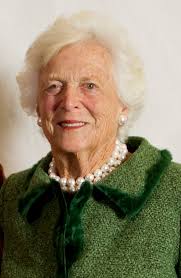While Barbara Bush’s family recently made public her decision to pursue “comfort care” at the end of her life, it is estimated that nearly two out of three Americans do not have a health care directive in place. According to an April 2018 Forbes article, “This is no surprise to those who knew Mrs. Bush and worked with her over the years, as she was an early champion of hospice programs for the terminally ill.”

A health care directive (sometimes known as a living will, health care proxy, personal directive, advance directive, or medical directive) is a document that allows you to express your wishes with regard to end-of-life care should you be too ill or incapacitated to speak on your own behalf. You may also appoint a trusted agent to step in and make critical end-of-life decisions for you.
Your directed agent can make a wide range of decisions for you including which treatments or medicines you do or do not want to receive, where you received care, and who can access your medical records. Of course, these decisions should be based on candid conversation regarding your wishes with your proposed agent while you are still heathy.
When selecting an agent, consider a family member, a friend, or a spiritual advisor. Choose someone who you can trust and who will carry out your wishes … even if doing so may be difficult or upsetting.
Because we believe health care directives are critical – no matter your age or your health — to a solid estate plan, they are included in all of our estate planning packages. Other documents used in planning may include wills, revocable living trusts, irrevocable trusts, and financial powers of attorney. We also offer more sophisticated planning services including estate tax planning, charitable planning and asset protection planning.
Contact Kristen Prull Moonan if you want to learn how a health care directive will be valuable for you.

